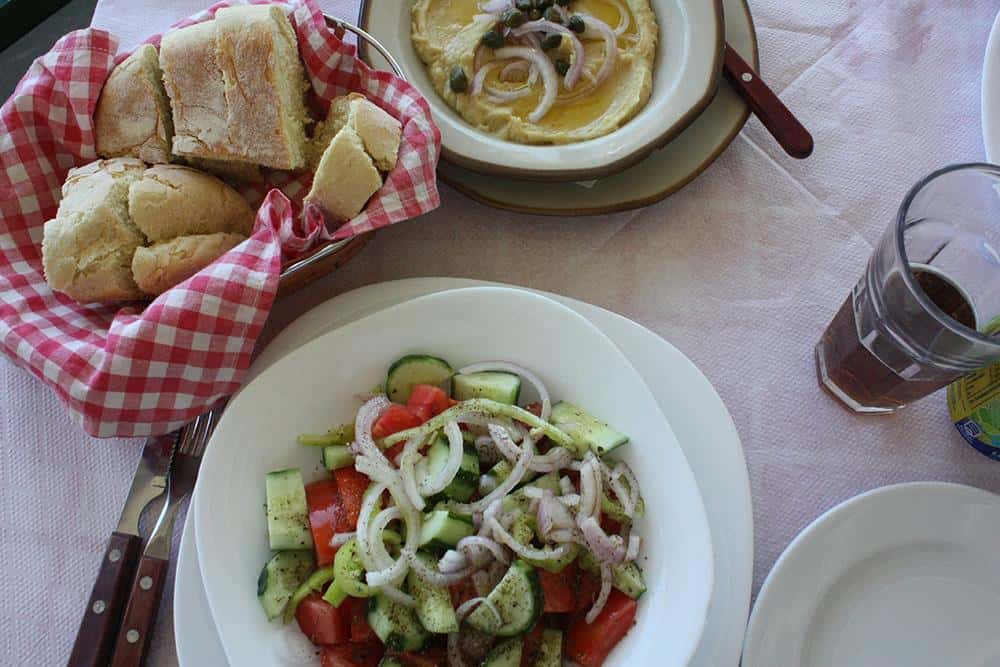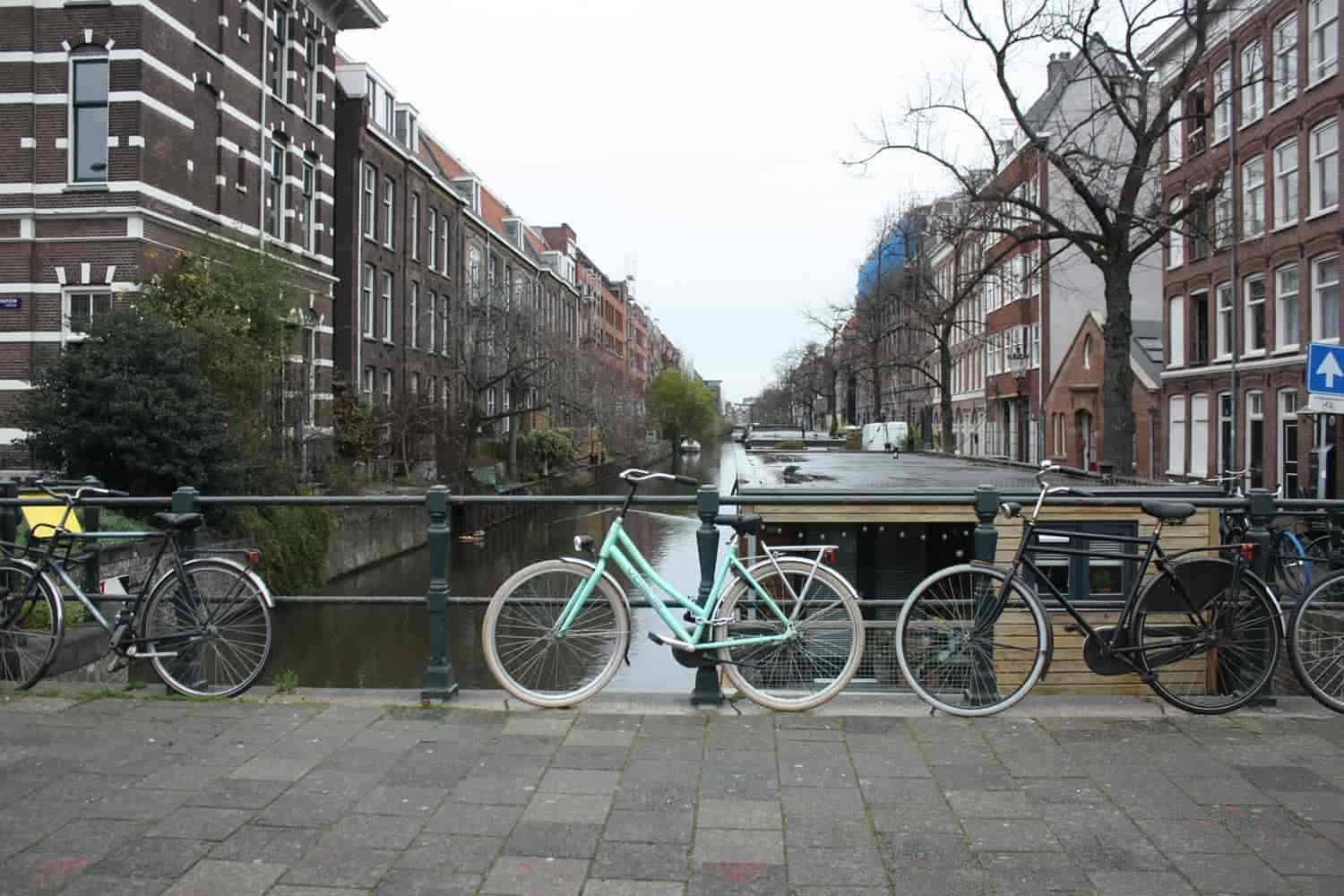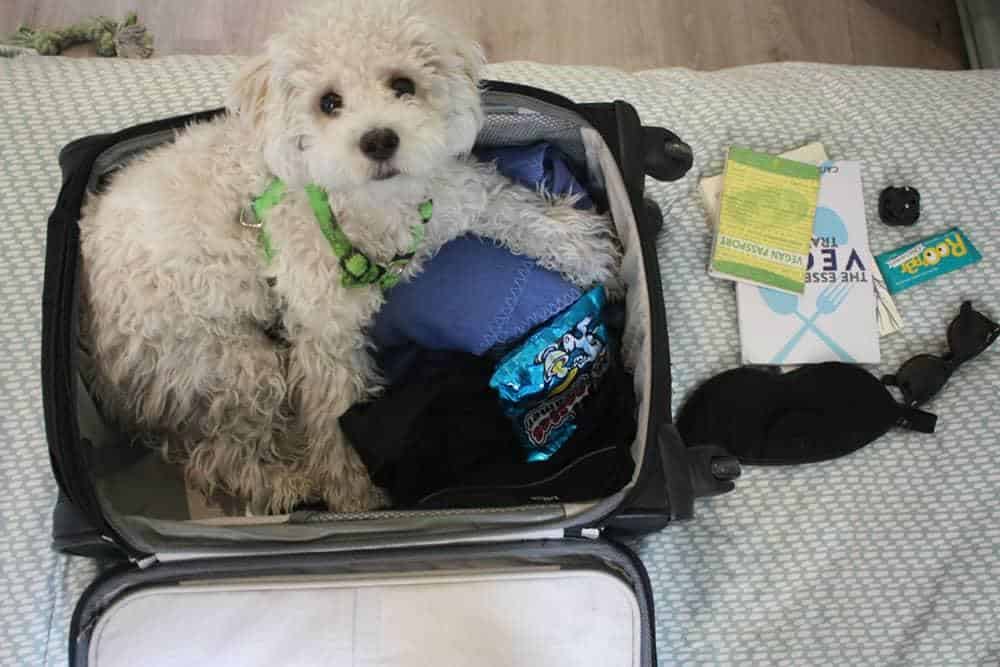You’re going to Paris in May and you don’t speak a word of French beyond “oui” and “cafe au lait” (except that last phrase isn’t even useful since you don’t drink dairy!)? What can you do to make sure you get vegan food in every bistro you visit?
This kind of question led me to write my book, The Essential Vegan Travel Guide. Click here to find out more.
This week’s reader question comes to me from a reader who asks how to deal with language barriers and make sure servers and others understand what ‘vegan’ means.
Carry a Vegan Passport or Cards
If you’re heading abroad and you want to be sure that you’ll be able to ask for vegan food even when you don’t speak the language, make sure you download the Vegan Passport app or have some allergy cards in your bag. A Vegan Passport app contains translations in 79 different languages explaining you’re vegan and what you can and can’t eat.
All you need to do is hand your phone to your server or chef and they can read through the explanation and (hopefully) whip something up for you that’s completely free of animal products.
You can also consider ordering cards in the local language; these are especially handy if you suffer from any allergies or intolerances. These explain what you can’t eat in the local language plus contain images for a visual guide (so even someone not entirely confident in the local language themselves can get the gist). Select Wisely cards ($14.95) are available for vegan diets but also for nut, soy, wheat and other allergies.
Learn the Local Lingo
You don’t have to become fluent in Mandarin for your upcoming trip to Beijing, but learning a few phrases can be really helpful, so you don’t have to whip out your Vegan Passport (you download it, right? I don’t get a commission, I just think they make vegan travelers’ lives easier!) every time you dine out.
Learn a couple of useful phrases like “I’m vegan,” “Does this contain meat?” “I don’t eat meat, fish, eggs or dairy.” Look for vegan phrase videos in the local language on Youtube — this is the easiest way to learn new phrases since you can hear the proper pronunciation.
Understand the Culture
Veganism is a huge and growing movement worldwide, but some cultures have different histories of vegetarianism and therefore have expectations. You can use this to your advantage. For example, in Eastern Orthodox countries, many Orthodox practitioners go vegan for Lent, meaning that during Lent in Romania, you can find vegan menus in almost every restaurant.
Learn a bit about the local culture and vegan/vegetarian history before you go. e.g. in Thailand, ask for Jay food and you will get vegan (and garlic-free) food. Knowing (faux) pearls of wisdom like this can save you hassle and score you vegan food!
Know Local Dishes that are Accidentally Vegan
You can cut down on confusion and moments where you’re lost in translation by finding out in advance if there are any local dishes that are usually vegan (or can easily be made vegan). Then all you have to do is look out for those dishes! For example in Greece, a lot of meze or small plates are naturally vegan. In Santorini I found that you could get a vegan bean dip called fava and a vegan Greek salad (by asking them to leave out the cheese) in all restaurants.
Plan Ahead and Find Vegetarian and Vegan Restaurants Before You Go
The best thing you can do to avoid confusion and make sure you always find vegan food is to plan in advance. I’ve written a whole book on how to plan your vegan travels (and what to do if you didn’t!). If you want to learn how to find vegan food anywhere in the world, you can get your copy of The Essential Vegan Travel Guide (an Amazon bestseller and #1 New Release) for just $14.95/£11.95 on Amazon. I’ve made sure it’s small enough to fit in your bag, too! :)













3 thoughts on “How to Communicate You’re Vegan (in Any Language)”
All good advice and now I need to get a Vegan Passport! I love the tip about knowing about which dishes/cultural practices are accidentally vegan too – that way you get to enjoy herbivorous food like the locals do!
Yes, it’s a great experience! A lot of people think being vegan means you can’t try “traditional” dishes but that’s not true, you just get a different and ultimately very rewarding experience trying local vegan dishes! :D
My emergency plan in Greece next week is to ask, as well as I can in Greek, for vegetarian, without eggs, cheese, milk or butter.